#storytelling
Text




I don't want to wear my skin
209 notes
·
View notes
Text

Hello everyone, this time I bring a group of poses that I used for some scenes in my story so they are not so varied, I am thinking of making another group with new reactions although at the moment I can't think of many, if you have any suggestion, it will be welcomed :)
Includes:
10 Individual Poses with Accessory
Note:
The accessory has incompatibility with hats, keep this in mind if you are going to use it with a sim that has this accessory
You need the plastic cup accessory

Donwload:
Patreon / SFS Pose / SFS Acc / CurseForge
26 notes
·
View notes
Text



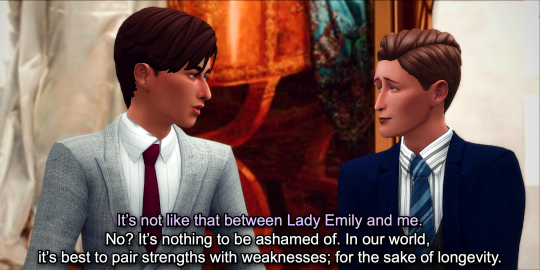
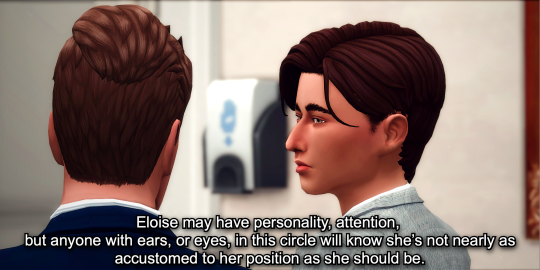
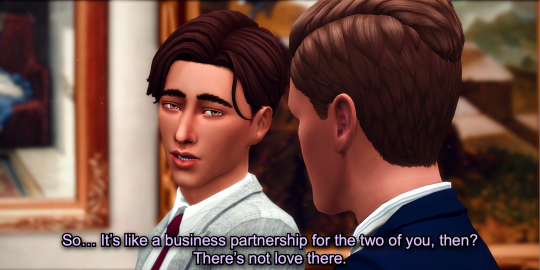
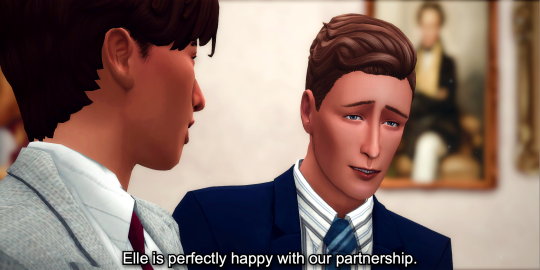


"The Way We Were,"
Her Illustrious Majesty and her Sexy Ambassador arrived in Armorica to attend their almost actual work-ing visit. The Imperial Prince joined the other Second-in-Line to view an instillation on the various artistic depictions of his ancestor, the contested Emperor Napoléon II.
Act Three, Scene Twenty-Two.
Last / Beginning / Next
This scene features sims from @empiredesimparte and @armoricaroyalty!
#royal simblr#ts4 storytelling#sims 4 screenshots#ts4 royalty#royal sims 4#s4 story#storytelling#the sims story#sims story#sims 4 story#ts4 story#twww funkyllama#ch philippe#a3
26 notes
·
View notes
Text
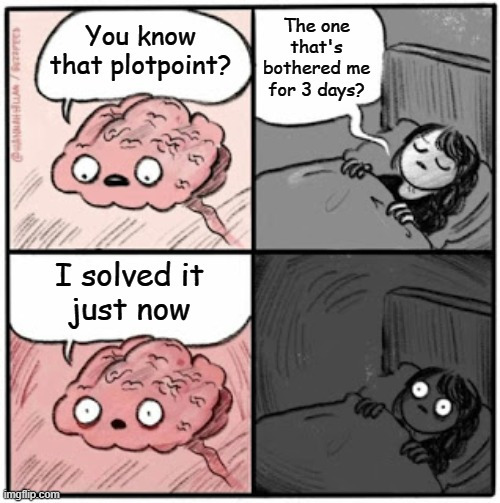
22K notes
·
View notes
Text

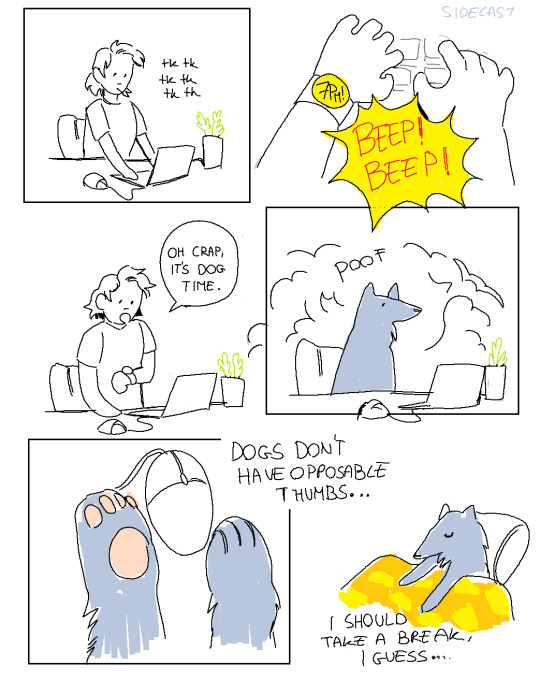
dog time AKA the only reason i've been managing not to overwork myself
#comic#ms paint#ms paint comic#work tips#dog#furry#fursona#dogy#dog time#storytelling#doodles#ms paint doodles#nicolart
149K notes
·
View notes
Text

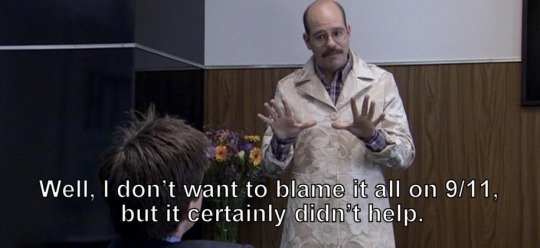
#arrested development#jenga meme#jenga memes#tobias funke#meme#memes#jenga#funny#funny memes#statistics#arrested development memes#9/11#9/11 meme#9/11 memes#lol#not wholesome#storytelling
19K notes
·
View notes
Text

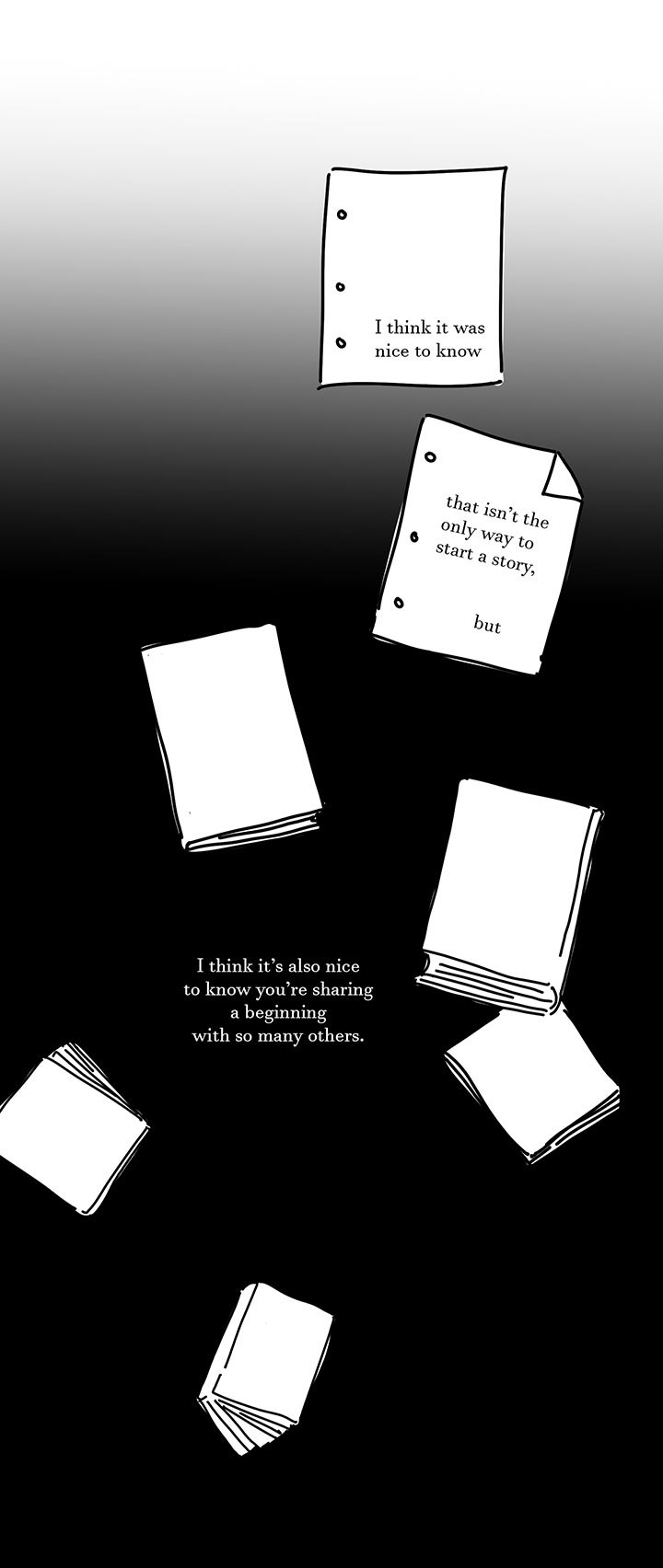
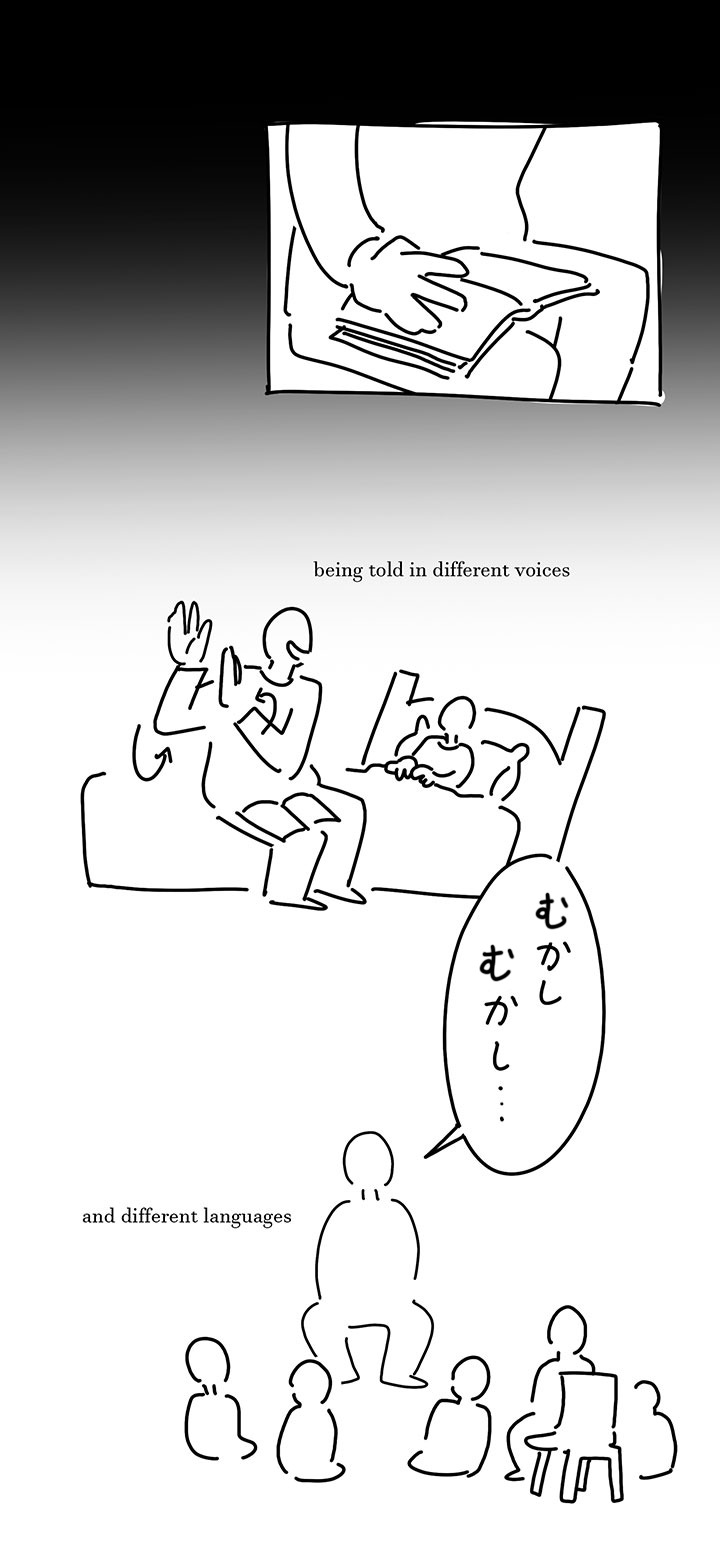
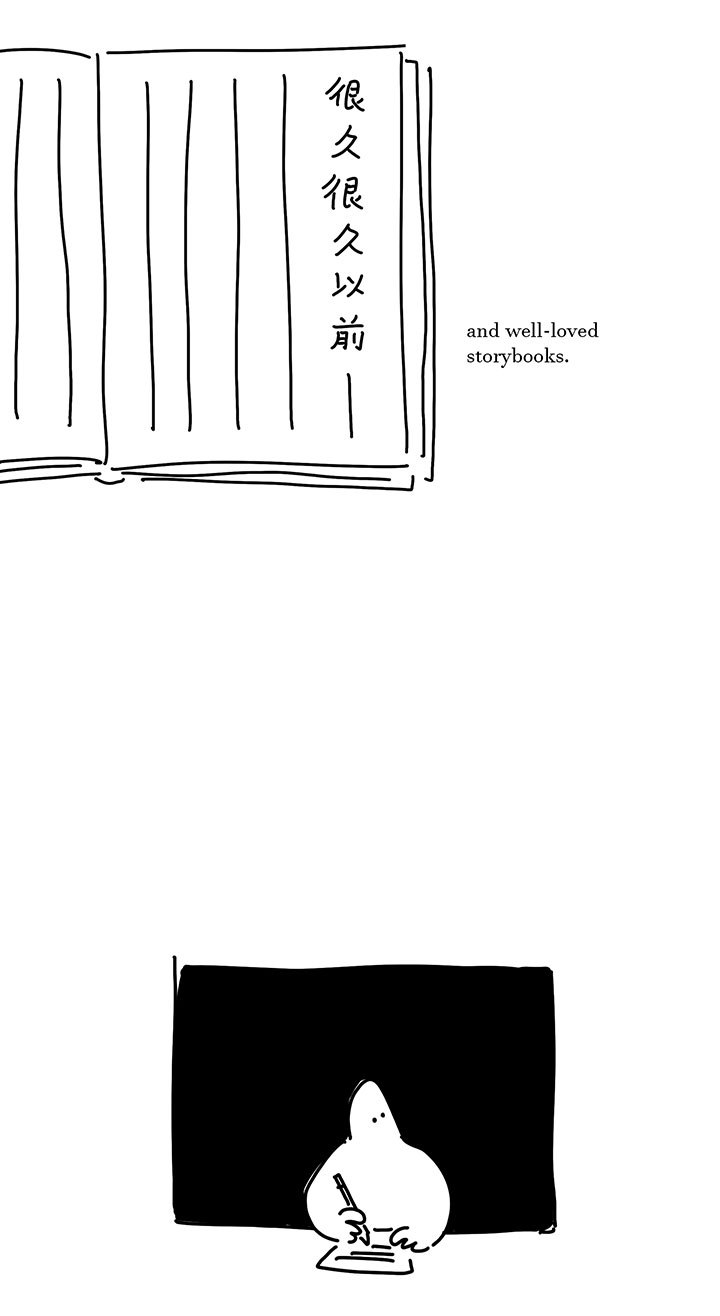
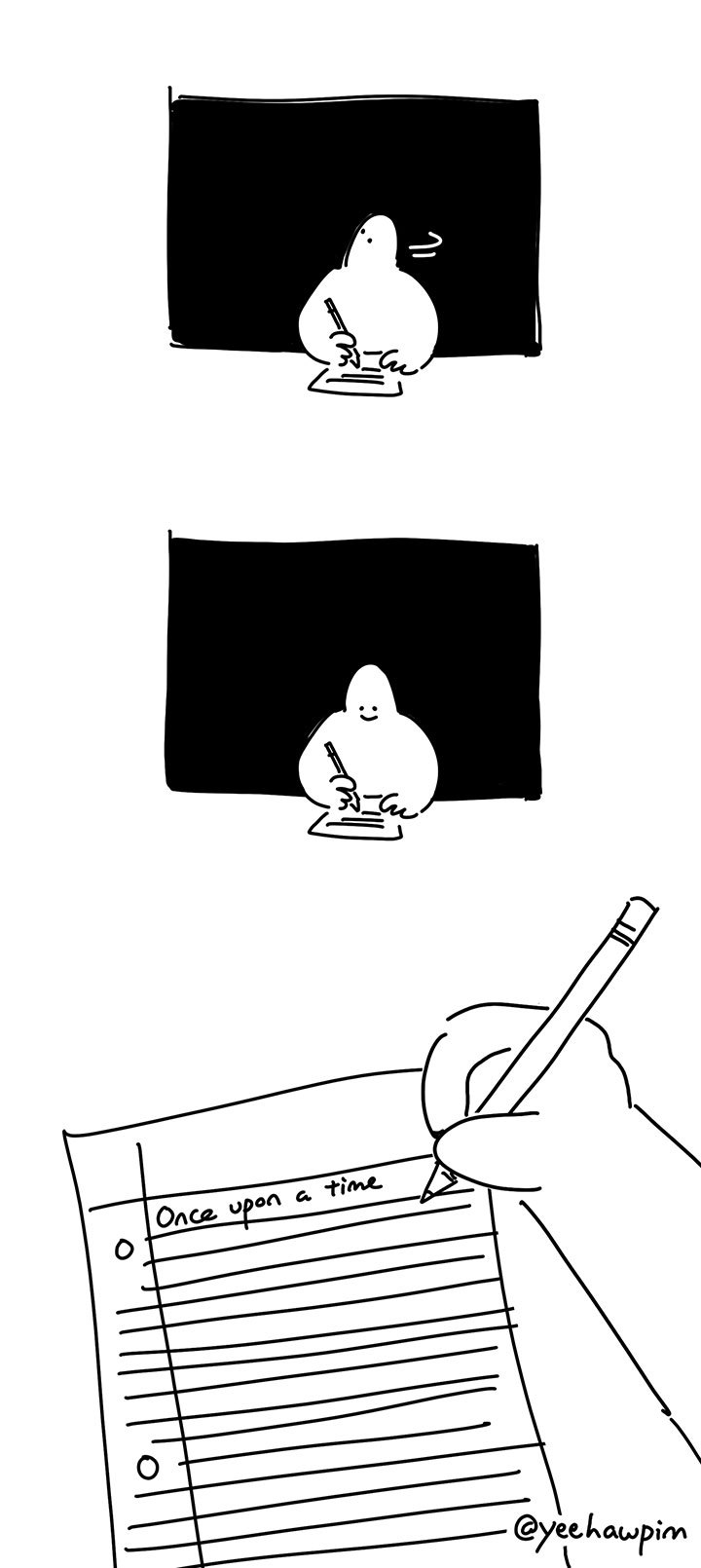
When I read "once upon a time" as the first sentence in The Book Of Lost Things by John Connolly it blew my mind tbh 😄
7K notes
·
View notes
Text
i'm actually very okay with "there was no other way this could end" endings. if they gotta die, let them die. if they gotta break up or go the wrong way or lose something important, let'em. so long as it completes the story. only thing i dislike more than a forced happy ending is a forced bad ending
#writing#storytelling#film#dnly rants#og#goncharov#gonchposting#writing tips#vaguing marvel on main#history
6K notes
·
View notes
Text

#meaning all the types of love! acespec ppl ur swag#WAHHHHHHHHHHHHHH#humanity (affectionate)#love is the answer#love is the reason whyyyyyy do you get it#this is about undertale if you even care#undertale#deltarune#and others i guess#a wrinkle in time#storytelling#humanity#night in the woods#at end the end of everything hold on to anything *explodes*#community#ohshc#good omens#neil gaiman#doctor who#all creatures great and small#media studies#bbge.meme#healing#positivity#optimism#the indomitable human spirit#if I’m doing this bc I want this to be bigger to the queen Elizabeth tweet post#No I Didn’t.#added alt text!#hopepunk
50K notes
·
View notes
Text
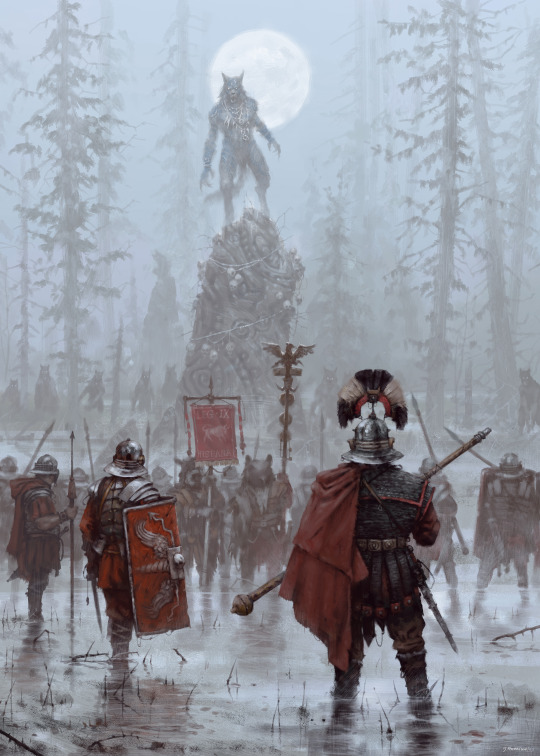
'Caledonian Forest'
" Written by Titus Ursus, Primus pilus of Legiō IX Hispana, in the third year of Hadrian's reign (* 120 AD). This will probably be the last entry in my diary. Our legion was ambushed in the wild realm called Caledonian Forest and was almost completely annihilated. Half of my first cohort is all that was left of the IX legiō. We were pushed into the marsh and we will probably die here, fighting bravely to the end in the name of Rome and the Emperor. We were attacked by a demonic pack of the barbaric Picts. They looked more like wild beasts than humans. Some of them were dressed in animal furs, painted with strange runic signs... others seemed to be two-legged wild beasts. They tore us apart as if we were made of paper! I saw our legatus and my brothers in arms being eaten alive, I will never forget their screams. The barbarians attacked us unnoticed, quickly and with wild fury, then disappeared in the fog. Mainly at night. Our shields, swords and armor were no use here. The enemy we face seems to be the ancient wrath of some dark gods we have awakened. We should never invade these lands. I hear demonic howls, they're coming! They're coming! "
Scrap of the papyrus written by Centurion Titus Ursus. Found in October 120AD in the Caledonian Forest. Taken to Rome, where it was presented to the emperor and then burned. Two years later, Emperor Hadrian ordered the construction of a wall on the border of the land called Caledonia, in north Britannia. Coincidence? I don't think so :))
work process: https://jrozalski.com/projects/Ke94zG
4K notes
·
View notes
Text
If you haven’t seen Wish yet and you love Disney, do not go see it. I am telling you now. It is ripping out the hearts of the Disney movies you love and then waving their corpses around as if celebrating those hearts.
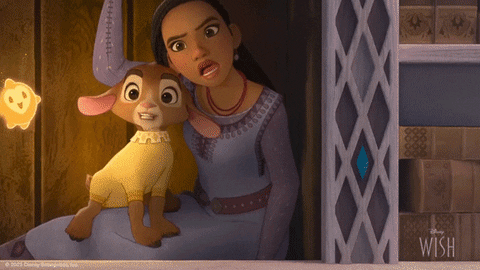
I’ll explain why, again: the message of Wish? Awful. Anti-Disney.
But they've been doing this for a long time. Saying one thing with their movies, and saying another with their PR and Disney Parks Soundtracks.
I'll explain.
Main Idea of Disney's Wish (and the You Are the Magic theme park song and merch): "The power to make your wishes come true is in you."
≠
Most Disney Movies' Idea on How to Have Wishes: "Do what's right, (trust a higher power) and something even more wonderful than what you wished will happen."
Don't try to argue with me about this. You have to look underneath the slogans and the sweater designs and the song titles to what the stories actually support to acknowledge this.
Because you can’t say “do what’s right” has power unless you answer the question “who gets to decide ‘what’s right?’” (Which, coincidentally, is a question Wish brings up and then doesn’t answer.)
Audiences of Disney used to accept that wishing on a star was much like prayer; there’s something you long for, and it’s out of your hands, but you wish for it and you do what you know is right in the meantime. And you’re not crushed, you’re not downhearted, because somewhere in your mind you trust that the combo of those two things—wishing on a higher power and diligence to do what’s good—will be what makes your wish come true.
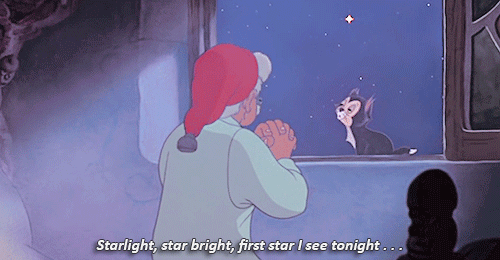
Trust in a higher power—COMBINED WITH:
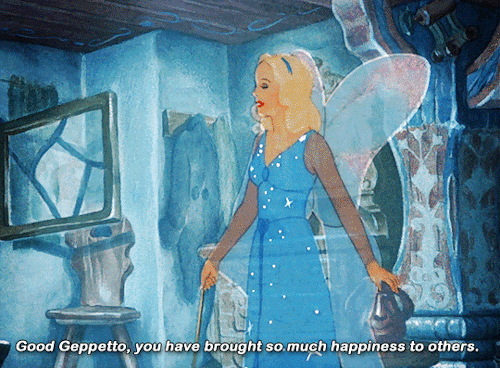
—diligence to do what’s good.
The Blue Fairy (higher power) gave Geppetto his wish specifically because he had demonstrated commitment to do good, whether he got what he wanted or not.
The Fairy Godmother (higher power) gave Cinderella her wish specifically because she kept on being kind and good to low creatures like mice and wicked stepsisters, whether she got what she wanted or not.
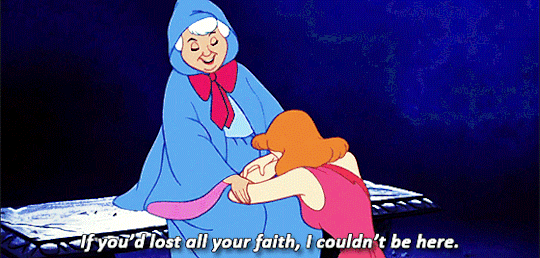
Do you know why that combo (higher power + diligence to do good) is impactful? Timeless? Important?
Because it’s selfless. You want something, but you’re not going to sacrifice doing the right thing to get it. You’re not going to focus so hard on making what you want a reality, on your own, that you miss out on things that could be more important than what you want. And, you’re not so self-focused as to believe that if you don’t do it, it won’t get done.
Jeez, that’s the whole point of The Princess and the Frog!

Tiana wishes to have her own restaurant, and she believes that only her own hard work will grant that wish. She misunderstands her dad’s advice before he dies. She isn’t willing to trust a higher power combined with her own diligence to do good—she only trusts her own ability.

It’s not until she realizes that Ray, the character of faith, was right all along that she learns—what she wished for was too self-focused. It wasn’t complete without love. Something bigger than herself. And getting that was never going to happen just based on her own hard work.
But you know what? It was never going to happen just by a “higher-power” flavored shortcut, either. Because Facilier offers her her wish if she’ll just trust him, no hard work needed. But what does she say?
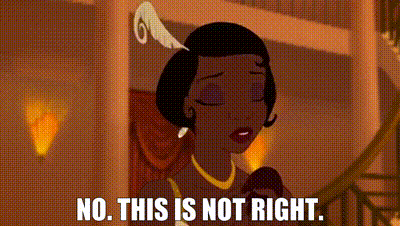
Trust in a higher power + diligence to do what’s right = selflessness, and getting more than you could have ever wished for. And if your wish is selfish, doing those two things will change your wish into something selfless.
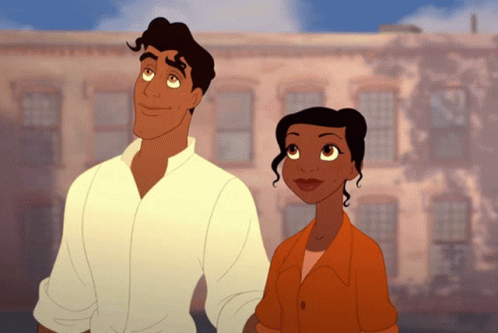
More examples? Get ‘em while they’re hot, in case Wish made you forget, just like the current #NotMyDisney executives have forgotten, what real Disney wishes are for.
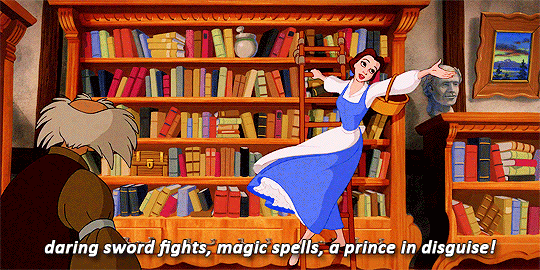
Belle wishes to have adventures in the great wide somewhere--but when she's imprisoned and that chance is taken from her it's not reversed because she worked hard to make her wish come true. It's granted because she gave up her wish for her father: she just did the right thing, regardless of her wish. And in the end, she does get what she wished for, which is adventure in an enchanted castle...and much more, because she gets true love, a throne, and a castle full of friends.
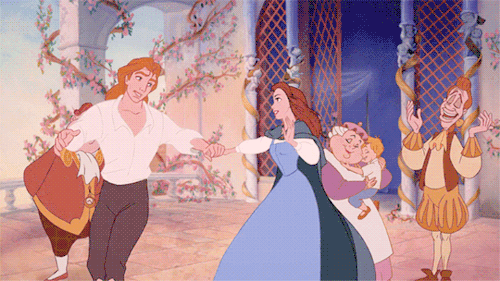
How about the One Who Started It All? The one Wish is failing to pay genuine tribute to?
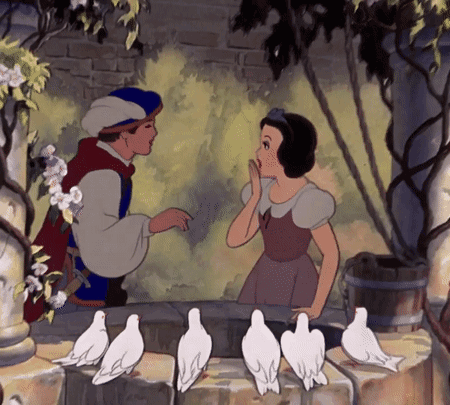
Snow White wishes for someone to love her, and he does--but when they're separated, she does not exercise power to make The Prince come back to her. Instead, she loves who she can where she’s at—the Dwarfs. In the meantime, she has faith that he will keep his promise, and that pure trust in a higher power outside of her control is a big contributing factor to why the Dwarfs come to love her, and learn from her...and in the end, even more than she could've wished happens. He does take her to his castle, but she also has seven new friends who also love her, and the Queen is dead. And she didn’t need to use “the power in her” to work harder and get it done. She just needed to not focus so much on herself at all.
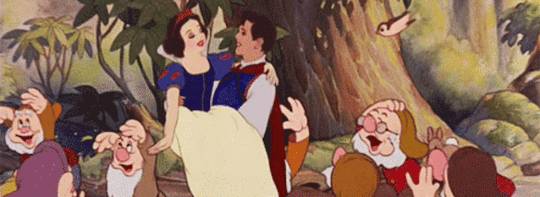
How about a male main character? One who’s wish starts out selfish, but after learning to wish on a higher power and be diligent to do the right thing, gets more than he could wish for?
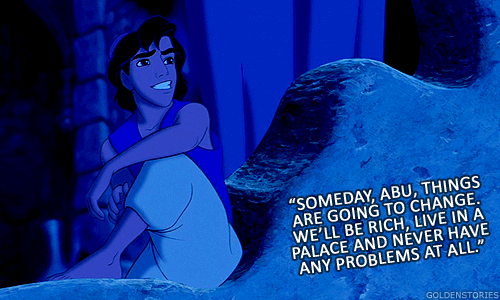
Aladdin wishes to be somebody different (somebody he believes Jasmine could love, somebody who lives in a palace and is respected and “never has any troubles at all.”)—but doing everything in his own power for that wish proves that it was selfish all along; so he switches to doing the right thing, regardless of if his wish comes true, and he gets even more than he could’ve wished. He gets real love with Jasmine, he gets his friend Genie, and he gets to be free from feeling “trapped” because he doesn’t have to hide who he is anymore.
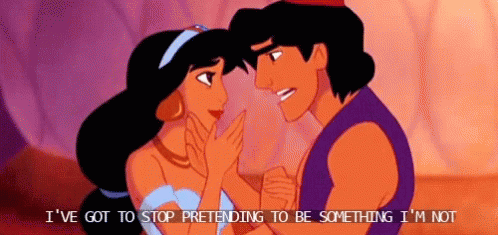
Or Simba?
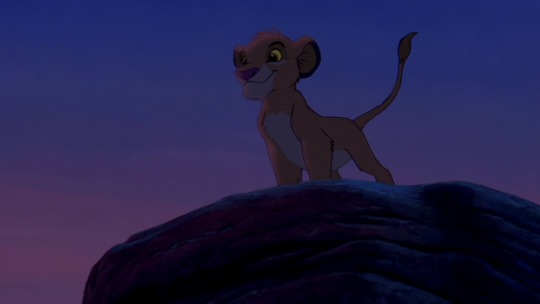
Simba wishes to get to do whatever he wants as King—but when Mufasa dies and he’s convinced it’s his fault, it isn’t for that wish that he goes back to Pride Rock to confront his past and his Uncle. It’s because he had an encounter with a higher power—his father—that helped him to realize his wish was selfish all along. He gives up the selfish wish, and he goes back to take his place as king, not so he can do whatever he wants, but so that he can take self-sacrificial responsibility that comes with ruling. And because he just does the right thing, finally, he gets more than what he wished for.
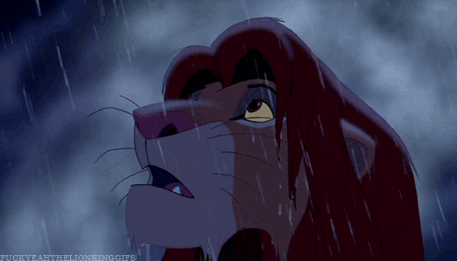
How about something more recent? Zootopia.
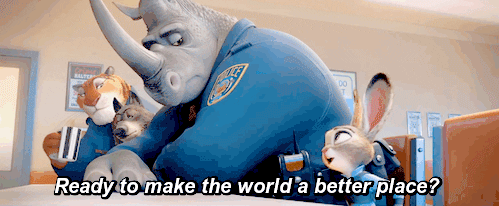
Judy wishes to make the world a better place by proving she can be what she wants to be and catching bad guys—but when she tries to make her wish happen on her own, in her own abilities, she fails and is forced to realize that she should’ve been looking for help by understanding “bad guys,” like Nick. It’s only after she humbled herself, admits she’s wrong, and changes her wish from “proving I can be what I want and catching bad guys” to “proving that understanding each other makes the world a better place” (much less self-focused) that her wish comes true—and so much more. She does make the world a better place, and she does get to catch bad guys, but she also gets to befriend one who was a good guy all along, and become all-around more effective at her dream job.
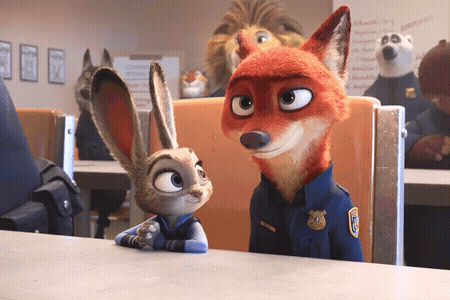
This is how Disney always has been. Because it’s at the heart of good storytelling, and even life (not to get too dramatic.)
The power is not in you. Because it’s not about you. Self-sacrifice, faith, and doing the next right thing regardless of if you get your heart’s fondest desire is what makes more than just your wishes come true. And there has to be belief in a higher power to make that message powerful.
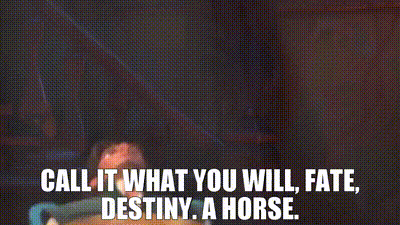
But Wish?
Not only is it bad at showing instead of telling. Not only is it lazy and soulless.
But it’s characters rip the Star out of the sky and say “don’t wish on this. Wish on yourself, to get what you wish for. You don’t need a higher power. You don’t even need to sacrifice to do what’s good—whatever you do is good, because you are the one doing it.”
That is wrong. That is not true, and it is not powerful. There’s no sacrifice in focusing on or placing your trust totally in yourself, and it undoes every good thing Disney has done up until now.
And it undoes it on the 100th anniversary, and it flaunts Easter eggs of the very things it’s undoing.
#pinocchio#disney#wish#Disney’s wish#wish Disney#Wish#Disney#meta#character analysis#storytelling#the princess and the frog#Disney fan#princess tiana#tiana#Naveen#Dr. Facilier#disney villains#asha#king Magnifico#Valentino#queen Amaya#ariana debose#chris pine#Cinderella#classic movies#film analysis#animated movies#animation#wish 2023#Aladdin
4K notes
·
View notes
Text
I spotted a reply to one of my posts:

And my knee-jerk response was "no, you should hear my friends talk about their lives--"
And it made me remember something.
Back in high school, my IB class did a lock-in-- where the group of students gets locked into one part of the school overnight on a weekend-- and after junk food and video games lost their appeal, we got to talking.
Only I didn't really know anything about almost any of them. They were all friendly enough, but I kept to myself for the most part, so we didn't have much to talk about once standard small talk ran out.
So I asked one of the other people sitting with me: "what's your story?"
Your life story.
And he told me. Sixteen years or so condensed into maybe a half hour. And it was the most fascinating life I could have imagined: the places he'd been, the things he'd done, the experiences that defined him. It boggled my mind.
When he finished and turned the question around to me, I thought mine sounded really boring in comparison, but he listened open-mouthed to the entire thing. Other kids were gathering around us by now, listening in. And when I finished mine, I turned to another one of them and asked the question to them.
And just like before, my mind was blown. A completely different life, completely different focal points, defining experiences, goals the likes of which were deserving of an anime. And the same happened with the next person we asked, and the next.
By the time each one of us had finished telling their story, it was time to go home for the morning. The video games had been abandoned hours ago. None of us had slept. We were too caught up in each other's lives.
All of which is to say:
Thank you. I do lead a very interesting life.
So do you.
25K notes
·
View notes
Note
Do you have any recommendations on what to do when you can’t write?
I’ve been struggling to write for years, but telling stories is all I want to do. I have ideas and plots and characters all figured out! But actually getting the words onto paper? I just can’t do it. There’s a mental block or something getting in the way.
I want to write, I so badly do. I want to tell my stories! But no matter how hard I try, no matter how much I love the story, the words never work properly. I can day dream scenes up perfectly, but as soon as I’m near paper the words all vanish.
I guess what I’m actually asking is: how did you defeat the blank page?
Well, first of all, I can confidently tell you that your storytelling per se is working just fine. You just told me a perfectly cogent story right there, in writing. So that's good to know.
Now let me put your mind a little at rest by telling you something reassuring about the Writer's Brain:
It's not the sharpest knife in the block, if you take my meaning. It can be tricked. It can be fooled. It can be bamboozled into working when it doesn't want to... sometimes with embarrassing ease. (And this approach is, by and large, far preferable to sitting around over-analyzing one's interior life to figure out what went wrong with your developmental process somewhere in the dim lost past. Just hornswoggle the silly thing into working and then do the analysis later, if you can be bothered.)
Sometimes just changing something basic in the process the Writer's Brain is expecting is enough to make it lose the plot (so to speak...) and let you get on with work. And in your case I'd say, more or less immediately: Have you tried telling the story to yourself out loud, recording it, and then transcribing the recording?
Because this problem is a commonplace among storytellers. Sit them down in the pub and give them tea or a drink and start them going, and you'll get half an effortless hour of hilarious prose about What The Cat Did In The Middle Of The Night or When The Neighbors Were Fighting In The Street Again Yesterday. But show them blank paper, or an empty screen, and (now that the pressure to perform is suddenly in place) they freeze.
So try doing an end run around your writing brain. Borrow or otherwise procure a little recorder of some kind. (Or if you've got a smartphone, add a voice recording app to it.) Go get comfortable somewhere and get yourself into that daydream state, and then—making sure the recorder's on—start talking.
It doesn't have to be perfect unblemished prose. The pursuit of that comes later, after draft zero-minus-one. Just tell the story... or some of it. Or a fragment of it. Even a few paragraphs is a triumph, in a situation like this. You may, during the recording, have to talk yourself into the story stage by starting out talking about something else first. Let that happen.
Then when you're done recording, listen to it and transcribe it (typed or handwritten, as you please).
And maybe a day later, do this again. And a day or two later, once more. And so forth.
You're going to have to keep at this, because your Writer's Brain may start suspecting what you're up to, and try throwing spanners into the works. (Its favorite being "Oh, this isn't working, I may as well give up..." Pay no attention to that nagging little voice behind the curtain. Just keep doing what you're doing. Persistence is a superpower.)
The thing to keep reminding yourself, as you settle into this process, is that sooner or later the WB's resistance is going to flag, because you really do want to tell stories. It does too. What you have to teach it is that—to coin a phrase—resistance is useless. :)
Anyway: give this a try. You'll need to be doing this daily for at least a couple of months to find out whether it works or not. So let me know how it goes.
(BTW: once you've broken through the barrier, you may well find that dictation is a good routine way for you to generate your first draft. At that point—should you feel inclined to go a little higher-tech than recording and hand transcription—let me recommend Dragon Anywhere. This is a month-to-month subscription version of Dragon's flagship text to speech program—the one @petermorwood and I got Terry Pratchett to use when he started having difficulty typing. I use Anywhere a lot, on days when it's easier to write stretched out or lying down than it is sitting up. It transcribes what you say, and then you can just email it to yourself and cut-and-paste it into your writing document. Very handy.)
Hope this helps!
4K notes
·
View notes
Text
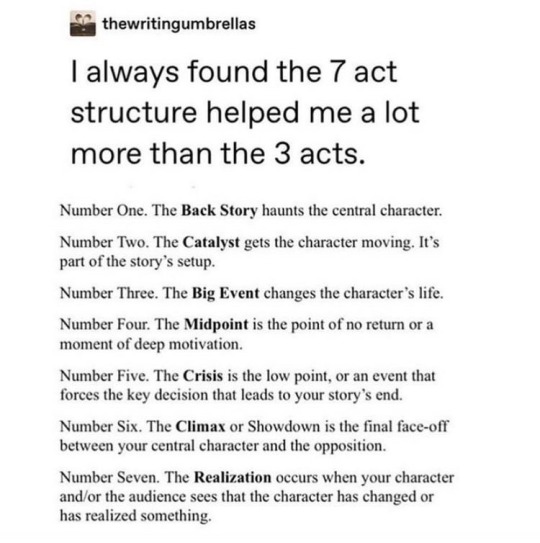
the elusive 7 act Structure
#writing tips#novel writing#writerscommunity#writersociety#writing advice#writer problems#writer things#writers block#writers of tumblr#storytelling#storytellers#writers#storyteller#writing#writerideas#writersoftwitter#stories#storyideas#writersoftumblr#writingideas#writingtips#writinghelp#badwriter
51K notes
·
View notes
Text
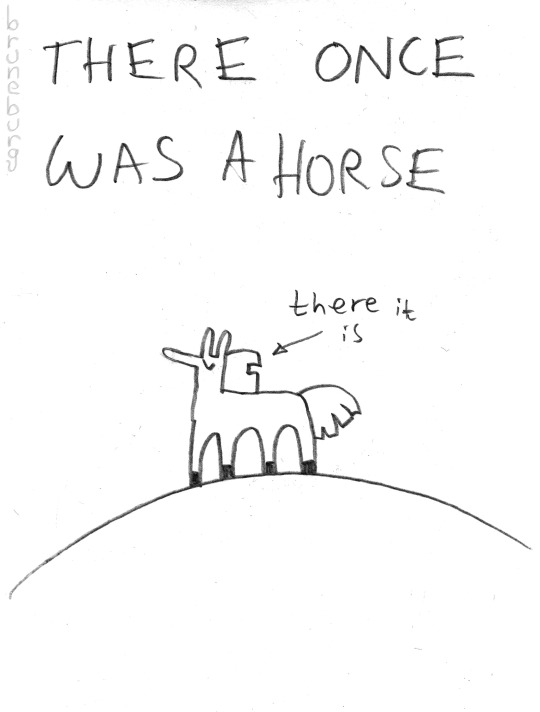
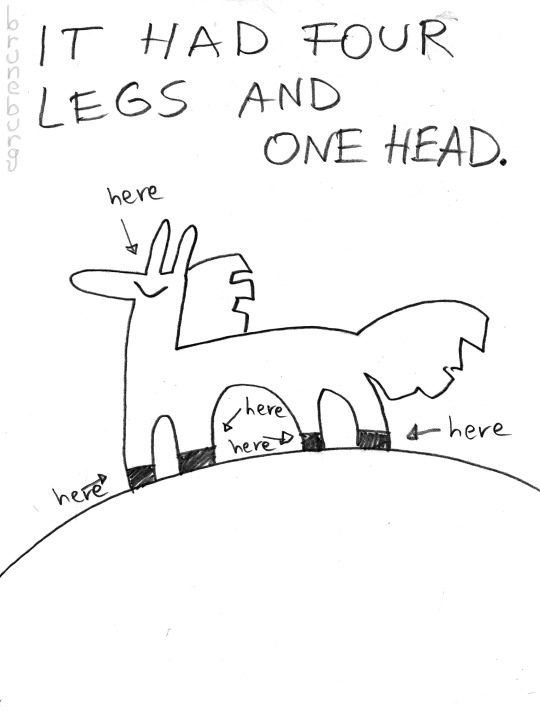
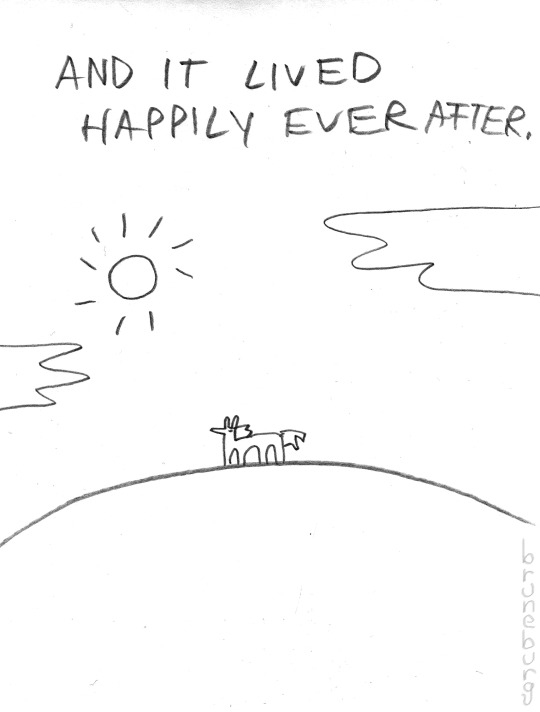
#book of horse#comic#horse#bruneburg#cartoony#silly#horses#horse comic#anita bruneburg#simplistic#doodle#sketch#artists on tumblr#artists of tumblr#bruneburg art#bruneburg comic#comics#absurd#nonsense#storytelling#tale#fairy tale#story#pencil#bw#from 2020#art
4K notes
·
View notes
Text
"I think Homer outwits most writers who have written on the War [fantasy archetype], by not taking sides.
The Trojan war is not and you cannot make it be the War of Good vs. Evil. It’s just a war, a wasteful, useless, needless, stupid, protracted, cruel mess full of individual acts of courage, cowardice, nobility, betrayal, limb-hacking-off, and disembowelment. Homer was a Greek and might have been partial to the Greek side, but he had a sense of justice or balance that seems characteristically Greek — maybe his people learned a good deal of it from him? His impartiality is far from dispassionate; the story is a torrent of passionate actions, generous, despicable, magnificent, trivial. But it is unprejudiced. It isn’t Satan vs. Angels. It isn’t Holy Warriors vs. Infidels. It isn’t hobbits vs. orcs. It’s just people vs. people.
Of course you can take sides, and almost everybody does. I try not to, but it’s no use; I just like the Trojans better than the Greeks. But Homer truly doesn’t take sides, and so he permits the story to be tragic. By tragedy, mind and soul are grieved, enlarged, and exalted.
Whether war itself can rise to tragedy, can enlarge and exalt the soul, I leave to those who have been more immediately part of a war than I have. I think some believe that it can, and might say that the opportunity for heroism and tragedy justifies war. I don’t know; all I know is what a poem about a war can do. In any case, war is something human beings do and show no signs of stopping doing, and so it may be less important to condemn it or to justify it than to be able to perceive it as tragic.
But once you take sides, you have lost that ability.
Is it our dominant religion that makes us want war to be between the good guys and the bad guys?
In the War of Good vs. Evil there can be divine or supernal justice but not human tragedy. It is by definition, technically, comic (as in The Divine Comedy): the good guys win. It has a happy ending. If the bad guys beat the good guys, unhappy ending, that’s mere reversal, flip side of the same coin. The author is not impartial. Dystopia is not tragedy.
Milton, a Christian, had to take sides, and couldn’t avoid comedy. He could approach tragedy only by making Evil, in the person of Lucifer, grand, heroic, and even sympathetic — which is faking it. He faked it very well.
Maybe it’s not only Christian habits of thought but the difficulty we all have in growing up that makes us insist justice must favor the good.
After all, 'Let the best man win' doesn’t mean the good man will win. It means, 'This will be a fair fight, no prejudice, no interference — so the best fighter will win it.' If the treacherous bully fairly defeats the nice guy, the treacherous bully is declared champion. This is justice. But it’s the kind of justice that children can’t bear. They rage against it. It’s not fair!
But if children never learn to bear it, they can’t go on to learn that a victory or a defeat in battle, or in any competition other than a purely moral one (whatever that might be), has nothing to do with who is morally better.
Might does not make right — right?
Therefore right does not make might. Right?
But we want it to. 'My strength is as the strength of ten because my heart is pure.'
If we insist that in the real world the ultimate victor must be the good guy, we’ve sacrificed right to might. (That’s what History does after most wars, when it applauds the victors for their superior virtue as well as their superior firepower.) If we falsify the terms of the competition, handicapping it, so that the good guys may lose the battle but always win the war, we’ve left the real world, we’re in fantasy land — wishful thinking country.
Homer didn’t do wishful thinking.
Homer’s Achilles is a disobedient officer, a sulky, self-pitying teenager who gets his nose out of joint and won’t fight for his own side. A sign that Achilles might grow up someday, if given time, is his love for his friend Patroclus. But his big snit is over a girl he was given to rape but has to give back to his superior officer, which to me rather dims the love story. To me Achilles is not a good guy. But he is a good warrior, a great fighter — even better than the Trojan prime warrior, Hector. Hector is a good guy on any terms — kind husband, kind father, responsible on all counts — a mensch. But right does not make might. Achilles kills him.
The famous Helen plays a quite small part in The Iliad. Because I know that she’ll come through the whole war with not a hair in her blond blow-dry out of place, I see her as opportunistic, immoral, emotionally about as deep as a cookie sheet. But if I believed that the good guys win, that the reward goes to the virtuous, I’d have to see her as an innocent beauty wronged by Fate and saved by the Greeks.
And people do see her that way. Homer lets us each make our own Helen; and so she is immortal.
I don’t know if such nobility of mind (in the sense of the impartial 'noble' gases) is possible to a modern writer of fantasy. Since we have worked so hard to separate History from Fiction, our fantasies are dire warnings, or mere nightmares, or else they are wish fulfillments."
- Ursula K. Le Guin, from No Time to Spare, 2013.
#ursula k. le guin#homer#quote#quotations#the iliad#trojan war#storytelling#fantasy#fiction writing#war#conflict#tragedy#john milton#paradise lost#greek mythology
2K notes
·
View notes